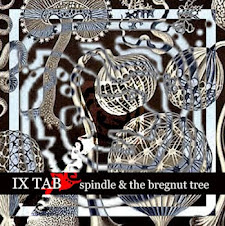
It's undoubtedly an underrated, genre-bending, film; you can see how annoying it might have been for reviewers at the time ( at this time too ) and I wondered about the gender split... Possession seems particularly frightening to men, I'd think, since even when a significant amount of the film is given over to Anna's (Isabelle Adjani's) ornate, breathless, breakdown the rest of the film is a brutalist attempt to undermine the male psyche...
It might be about Anna and her monsters but...
You have to be careful. I'm guessing, of course, that film critics in 1981 would have been mostly male but I'm not guessing that this would have creeped the hell out of a lot of males in 1981. Zulawski puts a fair amount of loathing (self and other kinds) into this and he succeeds pretty well into turning the plot of Vince Vaughan and Jennifer Aniston's The Break-Up into a terrifyingly intense study of Basic Male Fear.

Mark is the exemplar ambivalent cuckhold (remember, a true cuckold has no real awareness of the deception); he knows what Anna is doing and he doesn't know what Anna is doing - this could have been an acting disaster but Sam Neill really pulls this off. Every look is perfect. He's a boy and a man and, even though its obvious he's got a world of subterfuge on his side (he's a non specific spy in a very specific Cold War setting), it's also obvious that an understanding of this world of boys' secrets is no match for a woman like Anna. Or any woman.
Adjani got awards for her stirring bodily madness (all elbows and wrists and Masonic Distress signals) but Neill's performance is remarkable... He Daniel Day Lewis's it; you can almost see his soul leaching out of the screen...

Possession has been compared to Polanski's Repulsion (the Ballardian crush of the interiors, the pop-eyed crawling woman) and actually reminds me of Godard's signature break-up/down in Le Mepris but this is much darker than both (the light is always never quite) and much less focused on female neuroses than Repulsion. The 'monster' is generated by Anna, of course, but she is (at times) in control and spends most of the film on a whirlwind tour of sexualilty... The men try to dominate her, with violence (Mark) or sex (Heinrich) but they never get far. Even the homosexual men, immune to her charms (in all senses of the word - she is as much a Priestess as a sacrifice), are drawn into the webbing... They stutter, they disbelieve their own sexuality, they die anyway... Anna wins, even if each victory simply makes her journey towards sexual fulfilment seem a little more infinite... Almost, almost, almost... The little death is just not there

And Heinrich, of course, is the man that men hate. Women might find him annoying but men will hate him on sight. Mark hates him, feels sorry for him, hates him some more. Fey, hard as nails, sexually confident, 'artistic', Oedipal. He's like the character in that great Momus song 'The Homosexual' (clue: that character wasn't gay either). Again, Zulawski is telling us a story about men... Anna is used here (as are all the female characters: the repulsive fatlegged friend; the idealised non-teaching teacher Helen) as a wind that bends them; that she creates a monster is besides the point. The madness lies elsewhere in this film. That scene could have been replaced by another; it could have been removed entirely and the film would not have been dimmed.
And if you need evidence that this is less about Anna's possession than the male lack of it, then the scene in the ballet school, with Anna staring POV Porn style at the camera, breaking the third wall (and breaking the third leg) and returning the male gaze with compound (eye) interest. This could be unnecessarily titillating; in fact it's just wholly uncomfortable.





















No comments:
Post a Comment